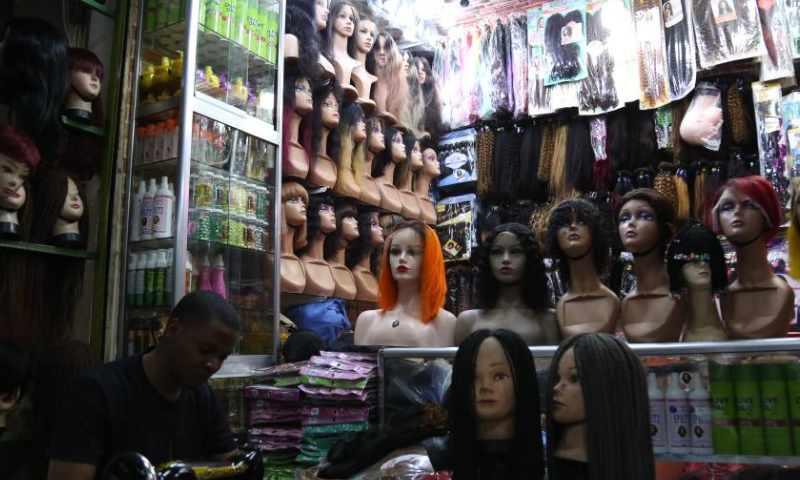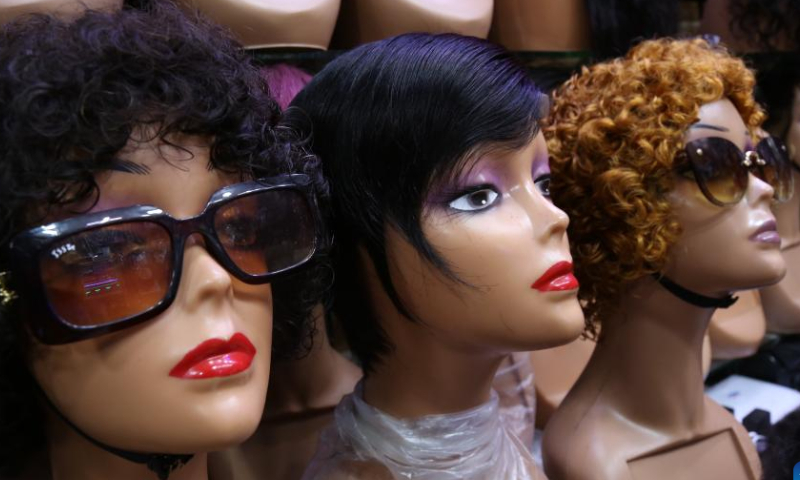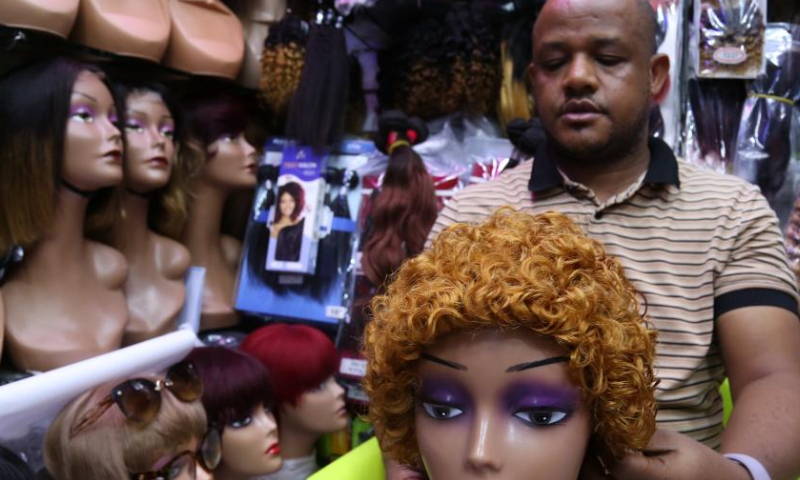
Wigs are displayed at a shop in Dar es Salaam, Tanzania, on Aug. 13, 2022. Photo: Xinhua

Wigs are displayed at a shop in Dar es Salaam, Tanzania, on Aug. 13, 2022. Photo: Xinhua

A hairstylist arranges a wig for display at a shop in Dar es Salaam, Tanzania, on Aug. 13, 2022. Photo: Xinhua
For 28-year-old Johnson Allen, a hairstylist based in Tanzania's business capital Dar es Salaam, the sky is the limit when it comes to selling human hair wigs.
In a recent interview with Xinhua, he said the hair wigs from China are selling like hotcakes in his three shops in the business capital's suburbs of Sinza, Kinondoni, and Kariakoo.
Allen, who owns a chain of hairstyle shops called Jonijo, is nicknamed Jonijo wigs, a recognition he earned after he ventured into the business in 2015.
"I started this business when I was still in secondary school. I started it as a passion when I realized that the future for this kind of business was bright. I threw my full weight into it and in 2018 the business started to pick up," said the hairstylist.
However, he said in 2020 when the COVID-19 pandemic broke out across the world, his business slowed down because he could not travel to China anymore to select the wigs he wanted. But he is optimistic again as he recounts that right now things are slowly getting back to normal.
Allen said he gets most of his customers on social media, especially Instagram due to his unique posts and the impressive quality of his human hair wigs.
"I import the wigs from China and I distribute and export them to various regions of Tanzania and outside the country, respectively," said the soft-spoken hairstylist.
He said for women, wigs are a favorable fashion that they imitate from some celebrities who prefer different styles of wigs or hairstyles.
"My clients come to my shop and ask for styles that they have seen worn by certain celebrities," he said, adding that this makes him press orders in China according to the demands of his clients.
Allen said prices of wigs vary depending on the type of wig, length or quality because some people prefer the Malaysian style of wigs while others prefer Mongolian styles.
"There are several styles, so sometimes we educate our customers because different styles cost differently. A wig costs up to 2 million Tanzania shillings (about 857 U.S. dollars). So we order according to our clients' demands," he said.
He said apart from selling the wigs, he is looking forward to opening a beauty salon where those buying the wigs can be fixed with the wigs with an added make-up. "I intend to make it a one-stop beauty center," he said.
